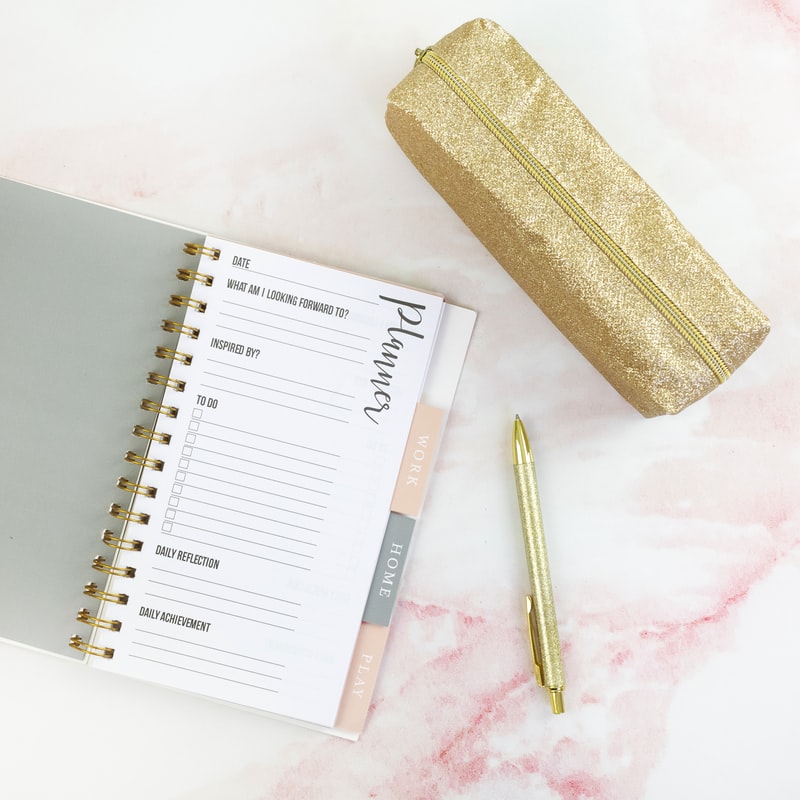The idea of reinventing yourself in the New Year is age-old. Many strive to meet goals, whether it’s pushing themselves to lose weight, work harder or meet ‘the one’. But once January is over and you’re back into your normal routine, these targets often fade into the background until they seem like a distant memory.
Instead of trying to transform yourself, make 2020 a year of kindness by setting goals that’ll improve your wellbeing and help you appreciate what you already have. To avoid giving up before you even start, we’ve devised some tips on how to turn them into an ongoing habit throughout the year and beyond.
WHAT RESOLUTIONS CAN IMPROVE YOUR SELF-CARE?
Before you can plan how you’re going to meet your goals, you need to decide what they are. There are numerous methods that can help you to boost your mood and relax. Some are small and some are big, but all are important factors for being kinder to yourself.
HEALTH AND FITNESS
While exercise is often the most popular New Year’s resolution, it doesn’t have to revolve around weight loss and watching the scales. Focusing on getting stronger or learning a new skill are much healthier ways to encourage yourself to get fit.
Along with the physical health benefits, exercise can boost your mental wellbeing by releasing endorphins and resulting in feelings of accomplishment. Yoga, in particular, is recommended for lowering stress and anxiety levels.

If you struggle to motivate yourself to hit the gym, try a fun class such as dance, aerial fitness or kickboxing, all of which can make exercise seem like less of a chore.
Your eating habits are also fundamental to a healthy lifestyle. While comfort food is great for a treat, it can deflate your mood and make you feel lethargic. Instead of going cold turkey with a restrictive or fad diet that leaves you feeling deprived, introduce some antioxidants to your diet such as blueberries, spinach, and dark chocolate and gradually reduce your intake of junk food.
GET BACK INTO READING
The rise of amazing stories published each year, ‘bookstagram’ social media accounts and celebrities promoting their love for reading mean that being a bookworm is back in fashion.
In fact, many are reading to take a break from their phones. Too much screen time can enhance feelings of anxiety, disrupt sleep, and cause your concentration levels and creativity to plummet.

However, reading can prolong your attention span, help you relax and improve brain connectivity. Previous research found that reading can reduce stress levels just as effectively as yoga and humour can.
To keep yourself motivated you could join a book club online or in real life and make a list of the books you want to read throughout the year.
SMALL ACTS OF KINDNESS
Showing kindness to others is a great way to make somebody’s day and can also be good for the soul. A University of Oxford study discovered that performing good deeds, such as holding the door for someone or donating money to a charity, has a modest effect on happiness.
66 Days of Kindness Challengeencourages you to do something kind for someone you love or someone you’ve never met before, which could be helping a stranger on the bus or surprising a work colleague with a morning coffee.
WEEKLY PAMPER NIGHTS
Dedicate one night a week to pampering yourself. Have a bubble bath, use your fanciest bath bomb and light a scented candle. Then carry out a lengthy skincare routine including a facial mask. Afterwards, you’ll feel rejuvenated, relaxed and content. You could also take this one step further by booking a spa treatment once in a while.

This is especially revitalising after a bad day when you feel like a human rain cloud or it could be the perfect pick-me-up to get you through a slow working week.
To continue pampering the next day, apply a natural deodorant in the morning which has a gentle formula to nourish and soften the skin. Soothing scents such as rose and lavender will also ensure you smell heavenly all day long.
LEARN TO MEDITATE
Meditation has recently become a mainstream trend instead of being seen as a niche practice. Guided meditation classes are on the rise and with apps such as Calm and Headspace, the opportunity to learn this skill is available from the comfort of your own home.
There are numerous reported benefits to meditating such as helping you stay calm in stressful situations, staying fully engaged in the present moment, and reducing worries and negative thoughts. A previous study found that meditation reduced anxiety ratings of participants by as much as 39%.

Habitually meditating can give you a more positive mentality and, learning how to rest your mind can also improve the quality of your sleep.
Similarly to physical exercise, it can take a while to see results from meditating so ensure you stick to a consistent routine.
HOW TO MEET YOUR GOALS
Choosing a goal is the easy part, keeping to it is another story. While each one of these resolutions can help you be kinder to yourself, choosing just one to focus on will improve the likelihood of achieving it. Once you’ve mastered it and it’s a part of your normal routine, then you can move on to another.

CREATE A PLAN OF ACTION
Now you know exactly what you’re aiming for, make your end-goal specific. If you want to work on your fitness, instead of just aspiring to ‘get in shape’, set a particular target such as learning a certain yoga move or being able to lift a particular weight. Once you’ve hit this mark, you’ll be inspired to move to the next level.

Then you need to determine how you’re going to reach your goal. If you want to carry out small acts of kindness, jot down some ideas of how you could make people smile. If you want to update your skincare regime, research the type of products that would suit your complexion and make a pampering schedule until it’s naturally a part of your routine.
KEEP YOURSELF MOTIVATE
If your goal isn’t achievable, you’ll quickly become demotivated and discouraged. If you want to eat a healthier diet, don’t completely remove the foods that give you joy otherwise you’re likely to give up. Ensure you also give yourself a realistic timeframe for reaching the target. If you realise along the way that the goal is too easy or difficult, amend it.
It’s a good idea to find ways to track your progress. If you’re trying to read more, decide on the number of books you want to read within a year or, if you’re learning how to meditate, you could aim to complete a specific number of sessions per week.
Focus on one step at a time to prevent yourself from getting overwhelmed by the long-term goal. It’s easier to stay motivated when you see immediate rewards and, by focusing on the smaller achievements, it’ll feel like you’re getting results sooner. This also encourages you to reflect on the progress you’ve made so far, which can give you a boost of encouragement.
At the end of the day, you’re human and, although you may set yourself goals with the best of intentions, you’re likely to face setbacks. But that’s okay. Give yourself a break and just start again. Don’t put too much pressure on meeting your target and focus on enjoying the journey instead. If you don’t complete your resolution by the chosen date, don’t give up. Keep going.




